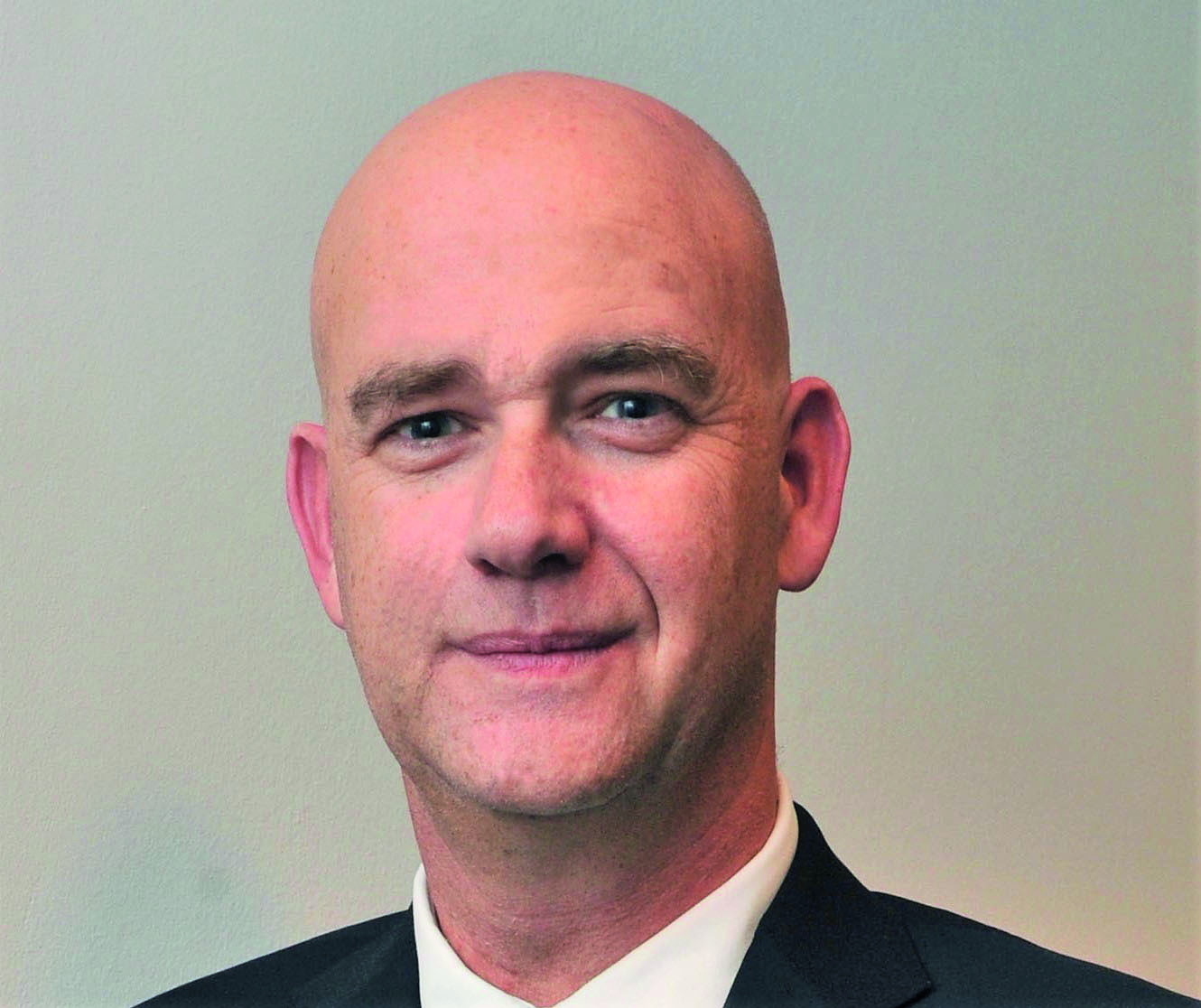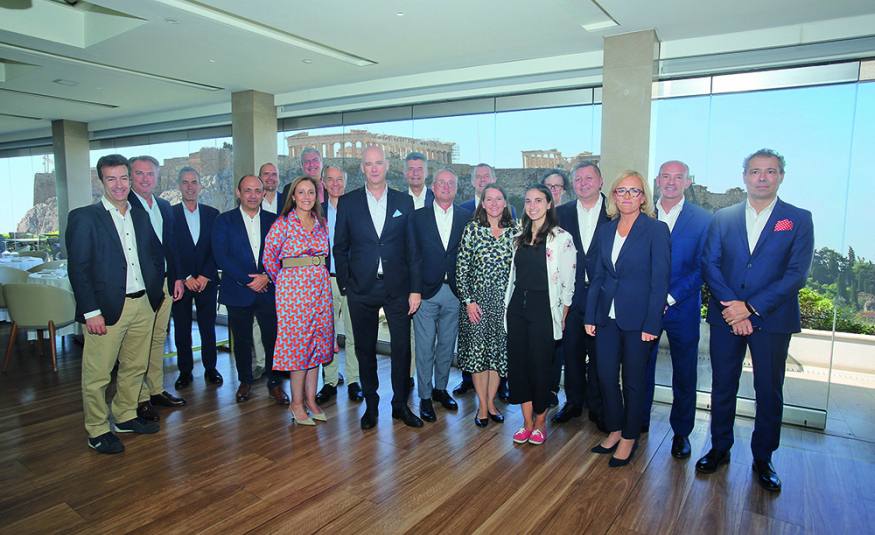 President of European Major Exhibition Centres Association, EMECA, Ricard Zapatero (pictured left) looks back on a proud 30-year history of the association and forward to future success
President of European Major Exhibition Centres Association, EMECA, Ricard Zapatero (pictured left) looks back on a proud 30-year history of the association and forward to future success
Tell us about the history of EMECA and its development since founding 30 years ago. What have been some of the key landmarks along the way?
EMECA was formed in 1992, the first year of the European Union internal market, by 13 founding members from eight countries. Its mission was to bring together European exhibition centres with an area of over 100,000sqm, which have a strong investment policy and international orientation in their activities.
The idea was to create an association that reflected the role of trade in the history of the people of Europe; to work together to master challenging changes and turn them into great opportunities.
Members concentrated on exchanging information about technology and markets as well as establishing common standards and, in general, contributing to knowledge and information about technical and commercial aspects of trade fairs in Europe.
That founding date also marked the beginning of a path of growth, enhancement and success for the exhibition industry in Europe.
In the first 10 years, EMECA tackled many legal topics, such as taxes and a variety of technical aspects of the venues. In the beginning of the years 2000, ‘EMECA Statistics’ were launched and the first working group of EU Affairs was founded. More studies and working groups followed, such as on economic impact, venue accessibility or energy efficiency.
In 2008, the registered office moved from Paris to Brussels, and EMECA started participating in EU-funded projects involving trade fairs, supported SMEs, new markets and start-ups, including the Overseas Trade Fairs 2.0 project.
In 2012, EMECA and UFI agreed to work together for the advocacy in Europe and founded the European Exhibition Industry Alliance. Since then, Barbara Weizsäcker holds the role of secretary-general for both EMECA and EEIA.
How has EMECA been lobbying for the sector, especially during the Covid-19 times, and now with new challenges facing our industry?
We worked hard on giving visibility to our sector and have kept the EU institutions informed on the latest situation and needs via established contacts by EEIA.
Items we supported were state aid, the distinction of exhibitions vs. mass events, Covid-19 safety measures, opening up travel again – the basis for our business. We called for travel rules harmonisation, avoiding fragmented documentation obligations and electronic vaccination documentation (pushing for the development of the European QR code system, which became the standard in many countries).
During the pandemic, many online meetings were organised both on EMECA and on EEIA level, with the idea of sharing experiences and supporting each other. News was also reported to the political level, and EEIA also contributed actively to a co-creation process for the digital and green transition of the larger travel and tourism ecosystem in Europe.
Since April 2022 all EMECA member venues have been operational again. How quickly do you think this recovery will move?
Nearly everywhere the recovery came quicker and better than expected. Obviously it depends on many factors like point of the reopening, trade fairs’ industry sectors, calendar of events and special effects like postponed exhibitions or one-time events added to the annual calendar. The appetite for in-person events is back. It remains unclear what the mid- and long-term effect of the current challenges of energy prices, supply chain problems, staff shortage and inflation will be, but the pandemic taught us to deal with major challenges never experienced before, therefore, we remain positive.
Hybrid solutions are not a good choice, with attendee groups not being fully satisfied, and then there’s the double work and costs involved. Digital exhibitions or meetings worked for some industries in extraordinary times for a limited period. Digital additions to a physical event like community platforms, though, are being developed everywhere, tailored to respective sectorial needs. These will complement the in-person events in the future.
What can you say about members’ business turnover? You quoted a figure of 87% turnover as an estimate for 2022 compared to the year 2019.
Although recovery for turnover has come faster than expected, profitability has not yet fully recovered.
Exhibitor and visitor numbers and booked square metres are still lower than before the pandemic, due to a variety of reasons. However, quality criteria will become more important and diversifying additional services is a great way to support the clients in their needs.
Which sectors, for the trade fair market, have been particularly hit in recent times?
Some trade fairs, showcasing energy intensive sectors or the ones that are hit hard by supply chain problems, e.g. with Asia, are encountering clients that cannot exhibit temporarily. However, we are partners of these industries and do our best to find solutions. Other sectors see a revival in Europe and health, security and green economy are among them. The pandemic taught us to stay calm and act fast.
EMECA is focused on the EU and lobbying there, but are you lobbying also for members from countries that are not members of the EU (such as the UK and Switzerland)? What kind of support can they expect?
We work closely with UFI through EEIA for advocacy in Europe. Not only in the EU, but we also work with the members from the other countries in Europe, usually affected by the same challenges, so initiatives can be used also for these countries.
On the global level we work with the Joint Industry Meetings Council, especially on the Net Zero Carbon initiative. By hosting both the International Federation of Exhibition Services and JMIC in the office in Brussels, we created a hub for the exhibition industry. Via EEIA, we are also in constant exchange with ECA, the Exhibition and Conference Alliance in the US, collaborate, but avoid duplication by clearly defining target stakeholders.
Tell us about your plans for an awards for organisers of new shows.
The idea is to celebrate innovation in our sector ad to mark our 30th anniversary. We would like to draw attention to innovative, smaller players in the sector, new exhibitions and new topics. We are working on the criteria and will start the call before the end of the year. The awards will be given in 2023.
EMECA members organise around a quarter of their events outside of Europe. Are those markets proving challenging to work in?
Asia is slowly opening up again for travel, although China remains an exemption. Many EMECA members do have subsidiaries or co-operations in China and it remains a complicated, uncertain exhibition market due to the Covid-19 policy; besides, Chinese exhibitors and visitors are still not coming back to trade fairs in Europe.
Business in Russia has come to a halt, although markets such as the Middle East and North America are working well again. Latin America is coming back.
EMECA continues to function as a network of likeminded associates who learn from each other and continue to innovate and bring the exhibition industry to the next level, be it in the digital field or for sustainability, on the way to become net zero carbon in 2050. We have a responsibility to our cities and communities we serve and we can make an important impact with our events and operations.
We will continue working closely with relevant organisations in our wider events sector.





